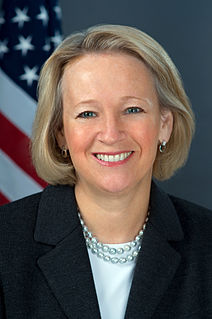A Quote by Ben Stein
I have always been very diversified, so I have never suffered a catastrophic loss. I spread my money around the way a large institutional investor does. I use different brokerage firms. I manage some of my accounts myself.
Related Quotes
Warren Buffett likes to say that the first rule of investing is "Don't lose money," and the second rule is, "Never forget the first rule." I too believe that avoiding loss should be the primary goal of every investor. This does not mean that investors should never incur the risk of any loss at all. Rather "don't lose money" means that over several years an investment portfolio should not be exposed to appreciable loss of principal.
For me, money is to use - it's only to use. So I never have money because I always spend. That's why in a way I protect myself in having houses. But if I had just cash or kept it in the bank, I'd spend it immediately. But not for stupid things. So I don't like to have money. I never have money in my pocket.
Brokerage firms and their executives cannot use threats regarding research activities as a way to obtain investment banking business. The threat to drop research coverage if Piper were not selected as the lead underwriter for a secondary offering was totally inappropriate and undermines the integrity of the market.
Financial institutions have been merging into a smaller number of very large banks. Almost all banks are interrelated. So the financial ecology is swelling into gigantic, incestuous, bureaucratic banks-when one fails, they all fall. We have moved from a diversified ecology of small banks, with varied lending policies, to a more homogeneous framework of firms that all resemble one another. True, we now have fewer failures, but when they occur... I shiver at the thought.
We have been negotiating a lot of different transactions to save money on contracts that were terrible, including airplane contracts that were out of control and late and terrible. Just absolutely catastrophic in terms of what was happening, and we've done some really good work. We're very proud of that.
Harvard and Yale concentrated with venture capitalists that got the best calls and brainpower. Very few firms made most of the money, and they made it in just a few periods. Everyone else returned between mediocre and lousy. When returns happened, envy rippled through institutional money management. The amount invested in venture capital went up 10 times post-1999. That later money was lost very quickly. It will happen again. I don't know anyone who successfully resists this stuff. It becomes a new orthodoxy.
The investor has the benefit of the stock market's daily and changing appraisal of his holdings, 'for whatever that appraisal may be worth', and, second, that the investor is able to increase or decrease his investment at the market's daily figure - 'if he chooses'. Thus the existence of a quoted market gives the investor certain options which he does not have if his security is unquoted. But it does not impose the current quotation on an investor who prefers to take his idea of value from some other source.
we have complaints that institutional dominance of the stock market has put 'the small investor at a disadvantage because he can't compete with the trust companies' huge resources, etc. The facts are quite the opposite. It may be that the institutions are better equipped than the individual to speculate in the market.But I am convinced that an individual investor with sound principles, and soundly advised, can do distinctly better over the long pull than large institutions.


































